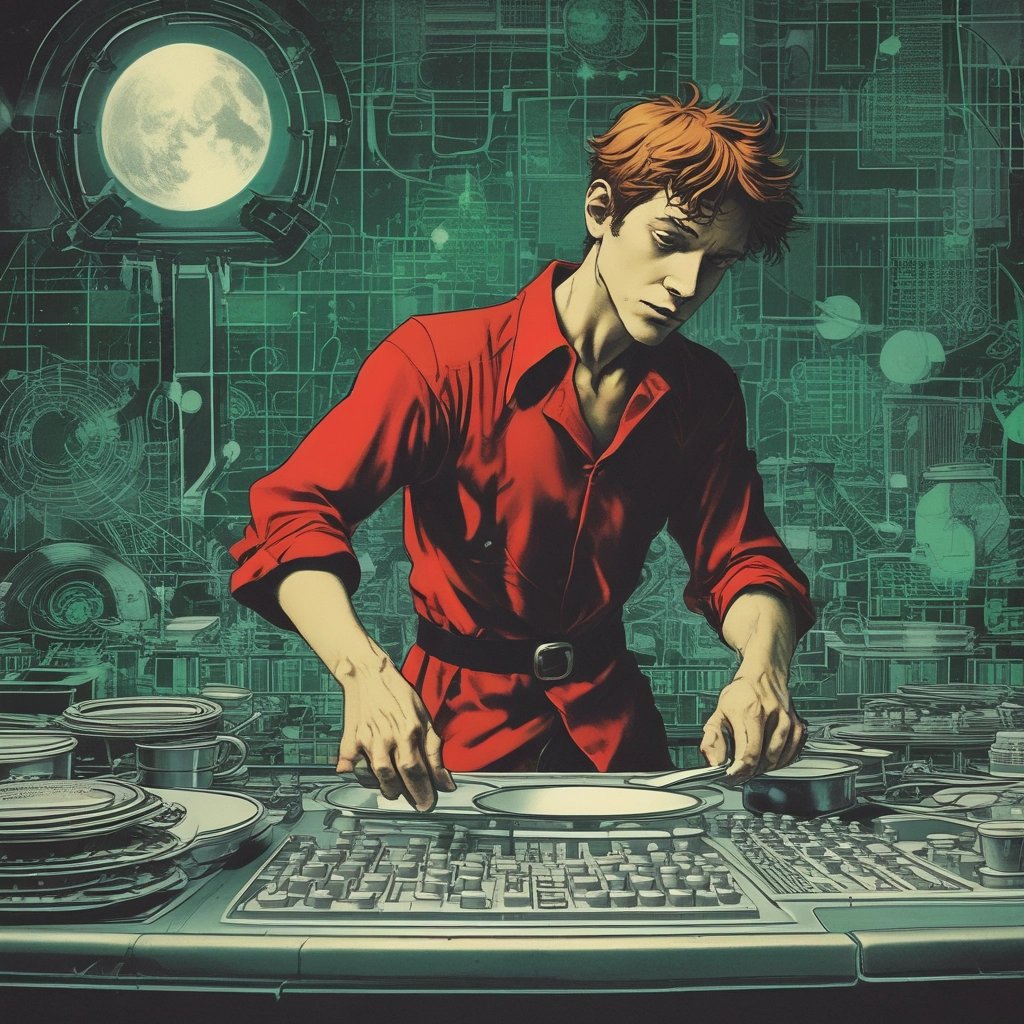Essays and Conversations on Community & Belonging
The Red Pill to Neverland
The Red Pill is the Blue Pill for the puer aeternus,. An analysis of how the promise of a harsh reality can become another fantasy, trapping men in perpetual adolescence.
PSYCHOLOGY & PERSONAL GROWTHTHE ARCHITECTURE OF THE SELFSHADOW AND PERSONAPUER AND FATHERPERFORMANCE V AUTHENTICITYCRISIS OF MASCULINITY
Alex Pilkington
7/26/20254 min read
He is charming, intelligent, often brimming with a charisma that feels like pure, uncut potential. He can talk for hours, with startling insight, about the deepest questions of existence. He has a dozen unfinished projects, a thousand brilliant ideas, and a fantasy life so vivid it makes the real world seem a pale and dreary imitation. He is Peter Pan in a hoodie, forever on the verge of greatness, forever failing to launch.
The puer aeternus, or eternal child, a concept Carl Jung developed to describe those souls who remain marooned in adolescence, is not merely a psychological curiosity; it is, I would argue, a defining pathology of our age. It is the spiritual malady of a generation raised on the promise of infinite choice and the terror of making a single, binding one.
For the puer, life is a "provisional" affair, a series of rehearsals for a grand performance that never begins. He fears commitment not out of laziness, but out of a perverse kind of reverence for his own potential. To choose one path (one career, one spouse, one city) is to kill all other possibilities. And so, he remains in a perpetual "loading zone," terrified of being trapped in a life that disappoints his own idealized vision. Reality, of course, inevitably disappoints. Women (or men depending on sexual orientation) are never the "mother goddess" of his fantasies; jobs are never the heroic calling he imagines. This cycle of fascination followed by bitter disillusionment becomes the rhythm of his life.
This is a profoundly defensive posture. The puer's ego is a fragile, paradoxical thing. It is simultaneously inflated with a sense of its own specialness, a need to be greater than others, a disdain for the conventional and the ordinary, and crippled by a deep-seated insecurity. He is capable of flashes of brilliance and can work intensely on things that capture his heroic imagination, but he recoils from the mundane tasks and grinding responsibilities that constitute the bulk of any real life. He blames his circumstances, his health, his past, anything to avoid the terrifying weight of taking full responsibility for his own existence.
And our technology, it must be said, is a powerful accelerant for this complex. The infinite scroll of social media, the endless gallery of potential mates on dating apps, the gig economy's promise of a life without commitment; these are the tools with which the puer constructs his own cage. They create a life he is terrified of living, a constant, nagging awareness of all the other lives he could be leading, which prevents him from ever truly inhabiting the one he has.
From the passive consumption of social media, it is a short leap to the more active, and perhaps more spiritually corrosive, escape of video game addiction. Here, the puer finds not just distraction, but a meticulously crafted illusion of purpose. In these digital Valhallas, he can be the hero he cannot be in reality. He is given clear objectives, rewarded with algorithmic praise, and allowed to experience a sense of mastery and progress that his real life, with its messy ambiguity, steadfastly denies him. It is the perfect simulacrum of a meaningful existence, a world of consequence-free striving where failure is temporary and restarting is always an option. It is the puer's dream, and his most potent poison.
This retreat into simulated heroism finds its intellectual counterpart in the peculiar online phenomenon of the "red pill" mindset or the belief that one has swallowed a bitter truth about the world, rejecting the comfortable "blue pill" illusions of the masses. And here, the irony becomes tragically exquisite. For in his quest to bravely face a supposed "harsh reality," the puer often finds merely another, more sophisticated fantasy. He masters its complex lore and conspiratorial worldview, substituting this intellectual "mastery" for the messy, humbling work of building a real life. He adopts the posture of a hardened realist while remaining terrified of genuine responsibility. The "red pill," which promises a path out of the Matrix, becomes his new Matrix—an all-encompassing simulation of understanding that insulates him from the terrifyingly mundane and ambiguous truths of adulthood. It is the ultimate blue pill, swallowed in the name of the red.
So what is the way out of this gilded prison? The cure is as unsexy as the complex is romantic. It is not some new heroic quest or grand gesture of rebellion. In fact, the puer is dangerously skilled at hijacking the very idea of personal growth and turning it into another fantasy. He can "heroise" the idea of accepting a dull life, turning the embrace of the mundane into a new, temporary source of motivation before he, once again, gets bored and retreats to the comfort of his digital consolations, disappearing for hours into the frictionless heroism of a video game.
No, the real path forward is found in sacrifice. It requires a conscious decision to focus on the cost of things, not the gain. It is about willingly paying with the currency the puer hoards most jealously: his time, his energy, his precious, limitless potential. It is the slow, unglamorous work of building a life, not fantasizing about one.
The escape begins not with a bang, but with a whimper of acceptance. It is found in doing the dishes, in showing up to the job on a Tuesday morning when inspiration is absent, in sticking with a relationship after the initial fascination has faded. It requires a radical embrace of the ordinary, a recognition that the simple, disciplined acts of a healthy life: moderate exercise, decent nutrition, real-world socialization which are not beneath a special soul but are, in fact, the very foundations of its strength.
True freedom, the kind that anchors the soul, is not found in the infinite expanse of what could be, but in the deep, narrow, and sacred confines of what is: a life chosen, a promise kept, a task done. It is the freedom of adulthood. And it is waiting for anyone with the courage to finally let go and fall to earth.




